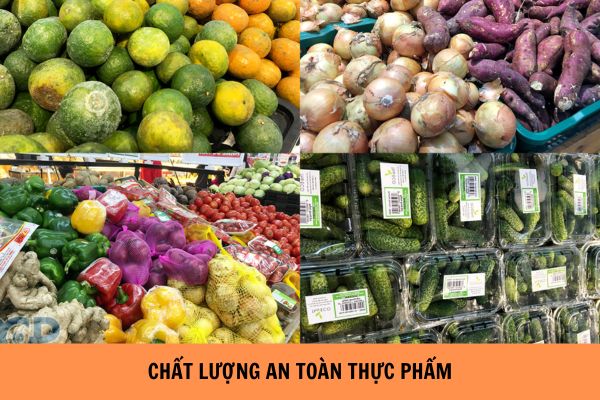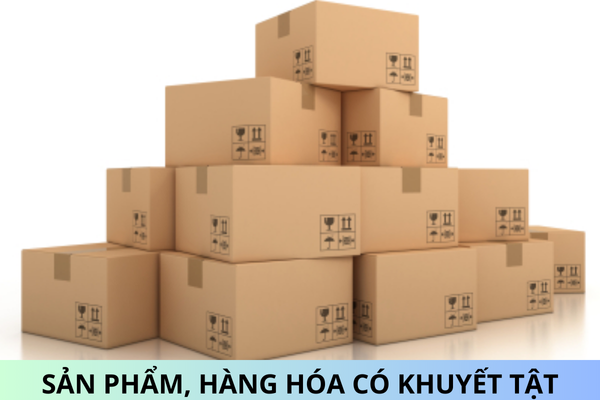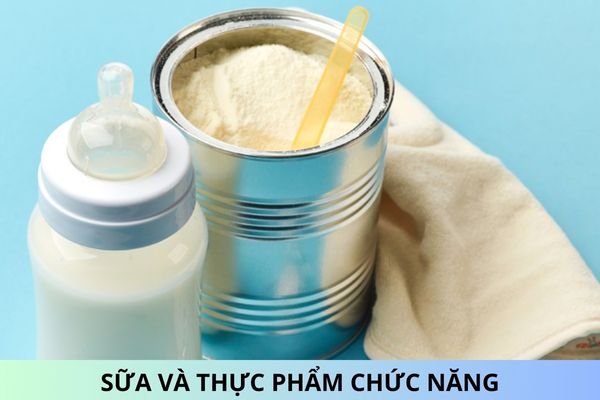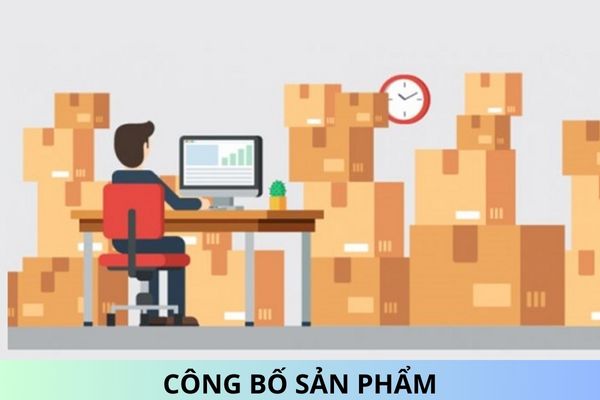Are market management organizations in Vietnam required to perform food safety and quality control on goods every 6 months?
Are market management organizations in Vietnam required to perform food safety and quality control on goods every 6 months?
On May 16, 2024, the Government of Vietnam issued Decree 55/2024/ND-CP detailing some provisions of the Law on Protection of Consumer Rights.
In Article 5 of Decree 55/2024/ND-CP, the responsibilities of market and mall management organizations are stipulated as follows:
Responsibilities of market and mall management organizations
Issue internal regulations following legal provisions, including essential content regarding the protection of consumer rights, such as the rights and responsibilities of consumers and sellers; the individuals responsible for receiving and resolving consumer requests and complaints, and measures for handling violations.
Mediate disputes between consumers and sellers within the market and mall upon request.
Establish and maintain operation of cross-checking scales and measuring equipment in markets and malls for consumers to self-check the quantity and weight of goods. Cross-checking scales and measuring equipment must be verified and still within the validity period according to legal regulations on measurement.
Regularly supervise the quality and quantity of goods, cross-checking scales, and measuring equipment within the market and mall areas.
Establish and publicly post hotlines to receive and address consumer requests in line with the classification levels of markets and malls as per legal regulations.
6. Periodically, every 6 months, notify and cooperate with functional agencies on commerce, market surveillance, food safety, standards, measurement, and quality in controlling the quality, quantity, origin, and food safety of goods and services within the markets and malls managed by them.
Report to competent authorities in case of discovering legal violations regarding consumer rights protection and other related regulations.
Handle violations according to the issued internal regulations following legal provisions.
Thus, every 6 months, market and mall management organizations must cooperate with functional agencies on commerce, market management, food safety, standards, measurement, and quality to control food safety and quality of goods.

Are market management organizations in Vietnam required to perform food safety and quality control on goods every 6 months? (Image from the Internet)
Which authority is currently responsible for food safety inspections in Vietnam?
According to Article 4 of Circular 48/2015/TT-BYT (amended by Clause 3 Article 5 of Circular 17/2023/TT-BYT) stipulating the food safety inspection agencies, their responsibilities, and powers:
Food safety inspection agencies, responsibilities, and powers of the inspection agencies and inspection teams
- Food safety inspection agencies include:
a) The Food Safety Department conducts food safety inspections nationwide.
b) The Department of Health, Sub-Department of Food Safety and Hygiene, and Food Safety Management Agency under the People’s Committee of provinces and centrally-run cities (hereinafter referred to as provincial level) conduct food safety inspections within the provincial level;
c) The People’s Committee of districts, district-level towns, provincial cities, and cities under centrally-run cities (hereinafter referred to as district level) are responsible for food safety inspections within the district level; assigning the Health Department, Health Center, or specialized agency to advise and help the district-level People’s Committee in state management of food safety to perform food safety inspection tasks within the area;
d) The People’s Committee of communes, commune-level towns (hereinafter referred to as communal level), and the commune Health Station are responsible for food safety inspections within the communal level.
Competent food safety inspection agencies perform the rights and tasks of food safety management agencies as prescribed in Article 69 of the Law on Food Safety.
Inspection teams established by competent food safety inspection agencies have tasks and powers prescribed in Article 70 of the Law on Food Safety.
The competent food safety inspection agencies include:
- The Food Safety Department that handles food safety inspections nationwide.
- The Department of Health, Sub-Department of Food Safety and Hygiene, and Food Safety Management Agency under the provincial-level People’s Committee handle food safety inspections within the provincial level.
- The district-level People’s Committee handles food safety inspections at the district level; assigning the Health Department, Health Center, or specialized agency to advise and help the district-level People’s Committee in state management of food safety to perform food safety inspection tasks within the area;
- The communal-level People’s Committee and the commune Health Station are responsible for food safety inspections within the communal level.
What are the food safety inspection contents at food service businesses in Vietnam?
According to the provisions in Clause 2 Article 6 of Circular 48/2015/TT-BYT (amended and supplemented by Clauses 4 and 5, Article 5 of Circular 17/2023/TT-BYT), the inspection content is as follows:
Inspection content
...
- For food service businesses, street food vendors:
a) Administrative and legal documents of the business: Inspect as stipulated in Point a Clause 1 of this Article;
b) Inspection of records, documents, and compliance of business owners regarding facility conditions, equipment, and tools; individuals directly involved in food production and business; production, processing procedures; food safety practices of employees; food transport and storage; water source; origin of food and ingredients used for food production and processing; sample retention; and other related regulations;
c) Sampling of food, food additives, processing aids, and ingredients, and products used for processing and serving food for testing when necessary. Apply similarly the provisions at Point h Clause 1 of this Article in the process of sampling for testing.
The contents for food safety inspection at food service businesses include the following:
- Administrative and legal documents of the food service business:
- Records, documents, and compliance of the food service business owner regarding:
+ Facility conditions, equipment, and tools;
+ Individuals directly involved in food production and business;
+ Production, processing procedures;
+ Food safety practices of employees;
+ Food transport and storage;
+ Water source;
+ Food origin and ingredients used for food production and processing;
+ Sample retention;
+ Other related regulations;
- Sampling for testing of food, food additives, processing aids, and ingredients, and products used for processing and serving food when necessary.
Sincerely!










